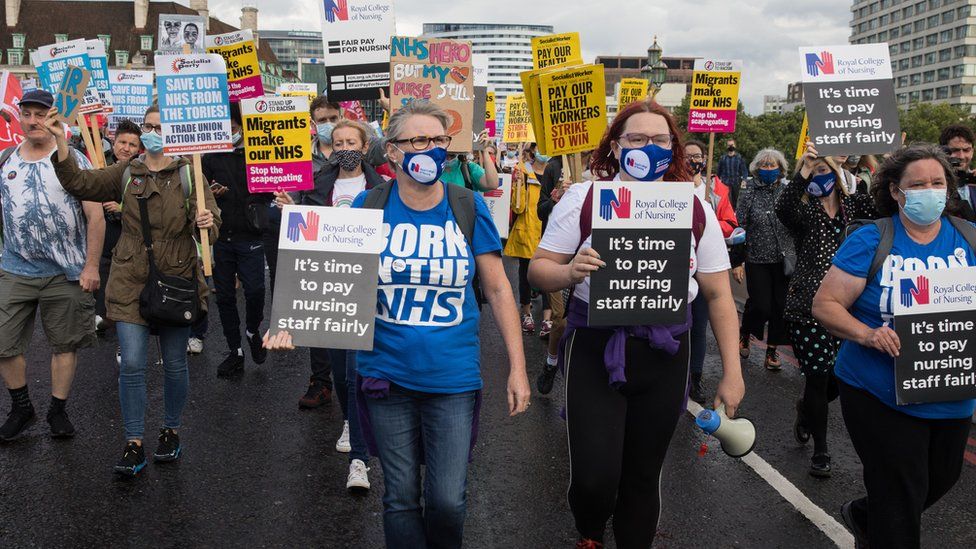ARTICLE AD BOX
 Image source, Getty Images
Image source, Getty Images
Strike action is expected before the end of the year after a ballot among RCN members
The 17% pay rise requested by a nursing union that has voted to strike is "not affordable", Rishi Sunak has said.
Nurses in the Royal College of Nursing (RCN) union have voted for its first UK-wide strike in its 106-year history.
The action will involve RCN members in more than half of hospitals and community teams, but emergency care will still be staffed.
The prime minister said the health secretary would sit down with unions to "see how we can resolve this".
Speaking in Blackpool after a meeting of the British-Irish Council, Mr Sunak told reporters he shared "everyone's respect and gratitude for our nurses".
But he added: "Where we are now is that the unions are asking for a 17% pay rise - and I think most people watching will recognise that clearly that's not affordable".
He said the government's pay offer was in with what had been recommended by the independent NHS Pay Review body in July.
The vote backing strike action comes after a dispute over pay when the government offered a below-inflation average increase of 4.75% for nurses in England and Wales next year.
It comes as the government searches for spending cuts ahead of an autumn statement next Thursday, also likely to include tax rises.
Your device may not support this visualisation
The RCN is calling for a rise of 5% above the 12.3% RPI inflation rate in July, when next year's pay deal was announced.
The union has argued the rise is an "essential down-payment to restore lost earnings caused by successive years of below-inflation pay awards".
However, no UK nation has offered close to that.
Nurses in every service in Scotland and Northern Ireland voted for action during a ballot whose results were released on Wednesday. In Wales, all but one health board did.
In England, the turnout was too low in nearly half of NHS trusts for strike action to take place.
Scotland has offered a flat rate of just over £2,200, which means a newly qualified nurse would get around 8% more.
In Northern Ireland, nurses are yet to receive a pay award because there is no working government.
The RCN, which represents about two-thirds of nurses in the NHS, is yet to set a date for strike action. However, it is expected that the first walkout will be before Christmas.
Under the union's strike rulebook, services such as intensive care will be fully staffed. Other services, such as cancer care, are also likely to be given some protection.
But the action will affect routine services, such as planned operations like knee and hip replacements, district nursing and mental health care.

 2 years ago
15
2 years ago
15








 English (US)
English (US)